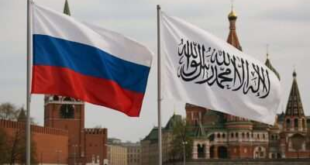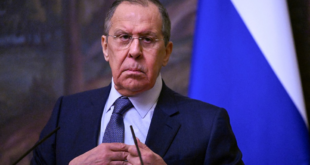KABUL, Afghanistan – Afghan forces said Tuesday that they killed a Taliban commander behind the kidnapping of South Korean church workers, less than a week after the hostages were let go under a deal seen as a propaganda coup for the hard-line Islamic militia
A Taliban spokesman denied any of its commanders was killed, and accused the government of exaggerating the group’s battlefield losses. Afghan and U.S.-led coalition forces said at least 39 suspected insurgents had been killed in several clashes since Monday.
The Taliban commander, Mullah Mateen, was killed along with 16 other militants in fighting late Monday and early Tuesday in the central province of Ghazni, where the insurgents seized 23 South Koreans on July 19, said Ghazni Deputy Gov. Kazim Allayar and a senior police officer.
Ghazni has seen several military operations since the captives’ release Aug. 29 and Aug. 30, possibly reflecting a desire by the Afghan government to assert its authority on the rebellious region following the abductions.
Allayar said Mateen played a key role in the kidnapping, including telephone negotiations with the government in the early days of the crisis. He said another Taliban leader also wanted for the abduction, Mullah Abdullah Jan, remained at large.
Taliban spokesman Qari Yousef Ahmadi said seven insurgents were killed in the overnight clash, and described all of them as ordinary fighters. He said the Taliban did not have a commander called Mullah Mateen.
In the past, Afghan authorities have often made claims to have killed local Taliban commanders that turned out to be wrong. At the same time, Taliban spokesman have played down or lied about their battlefield losses.
Two of the Korean hostages were slain soon after the kidnapping. Two women were released later during the Taliban’s negotiations with South Korea, and the remaining 19 were freed after Seoul repeated a long-standing commitment to withdraw its 200 soldiers here by year’s end and prevent Christian missionaries from traveling to Afghanistan.
The two women freed Aug. 13 spoke about their captivity during a news conference Tuesday, appearing in hospital gowns at a news conference held at a hospital south of Seoul where the 21 survivors are receiving medical treatment.
One of the women, Kim Kyung-ja, mentioned how some Taliban fighters, wearing masks, carried machine guns and a video camera. “I’m still scared of cameras,” she told the crowd of journalists, which included many still and television photographers.
The session ended abruptly when a pale-looking Kim suddenly called for a doctor.
Earlier, she and her companion, Kim Gina, told of their fear during their 26 days in captivity. “We thought we might be killed when were moved to another location at night,” Kim Gina said.
The hostages have said they were separated into small groups, and Kim Gina said her group, which included Kim Kyung-ja, was moved 15 to 16 times before the two were freed.
She said that group also included 29-year-old Shim Sung-min, one of the two men slain by the insurgents.
“Sung-Min said, ‘Don’t worry, it will be OK,'” Kim recalled. “He put us at ease.”
She said the Taliban called Shim away on July 31, then told the other hostages he had been sent home. She said she did not learn he had been killed until her release.
Though the Taliban threatened the hostages with guns, some were kind, Kim said. “When we met good Taliban we tried to talk to them,” she said.
Asked about reports some male hostages were beaten for refusing to recite Muslim prayers, Kim said she had not heard anything like that.
While the Taliban apparently did not extract any new concessions from South Korea, the negotiations with government representatives bolstered the insurgents’ legitimacy at a time of surging violence in Afghanistan, analysts have said.
On Tuesday, Taliban insurgents armed with machine guns and rocket-propelled grenades attacked an observation post close to a large U.S.-led coalition base in central Afghanistan, the coalition said in a statement.
Afghan and coalition soldiers killed 10 suspected insurgents, including a district “sub-commander,” during the fight, the coalition said, giving no more details.
On Monday, a joint U.S.-led coalition patrol came under suspected Taliban attack in southern Kandahar province, a separate statement said. Aircraft were summoned to bomb the Taliban positions, killing “over one dozen” of the attackers, the statement said.
It was not possible to confirm casualty figures because travel to the areas where the fighting was reported is extremely dangerous.
Afghan officials said two suicide bombers killed three Afghan police officers and wounded seven in an attack Tuesday in the town of Kunduz in northern Afghanistan and another Monday in Paktika province, a militant hotspot that borders Pakistan.
The Taliban ruled much of Afghanistan from the mid-1990s until late 2001, imposing an extreme version of Islam and harboring al-Qaida leaders and thousands of other Muslim militants from around the world.
They were ousted by a U.S.-led coalition following the Sept. 11 attacks on the United States, but are leading an increasingly bloody insurgency. More than 4,200 people — most of them militants — have been killed this year, according to an Associated Press count.
 Eurasia Press & News
Eurasia Press & News



